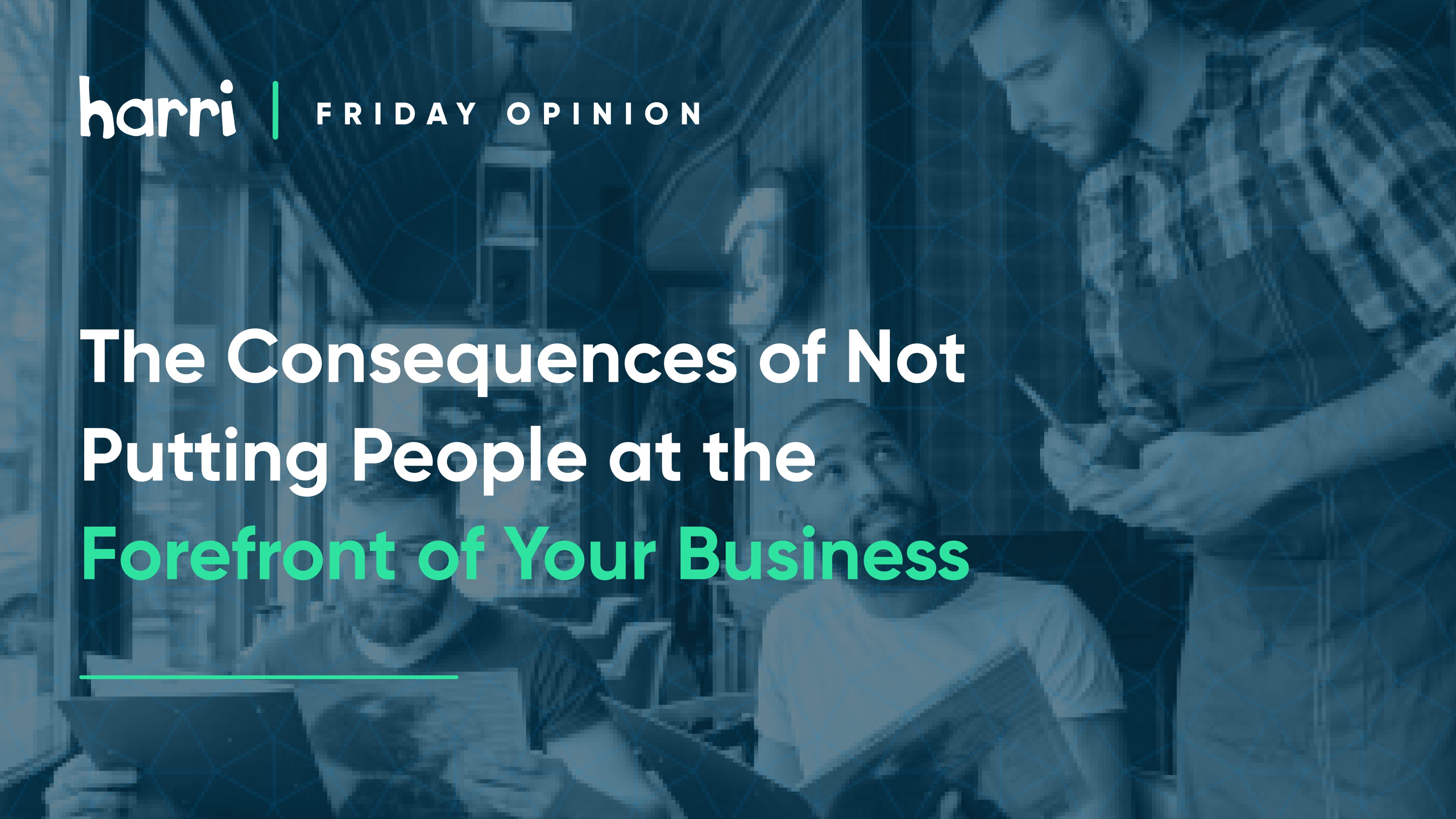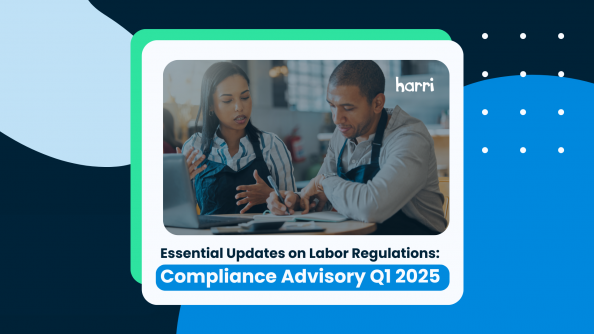The Consequences of Not Putting People at the Forefront of Your Business

- By Harri Insider Team | August 11, 2021
There’s been recent debate about whether staff meals should be advertised as a benefit or not. Some luxury hotels take a proportion of staff wages to cover their meals while some operators include staff meals without a question (nor a proportion of pay). It doesn’t sound right to me that cutting pay to feed staff is putting people at the forefront of your business. But you could argue that those coming fresh into hospitality would know no difference and, let’s face it, this is the way it’s always been done.
So when we talk about putting people at the forefront of our businesses, what does this actually mean?
Things need to change, that’s for sure. Not a shift in behaviour/surface change – it’s got to be a change in behaviour. If this doesn’t happen, we’re likely to have a staffing crisis for much longer than we would ever care to imagine. And the impact of that on hospitality? I’m sure there are people reading this now who know too well what the impact is and will be.
Let’s break this down and start with hotels. We know there’s a strong tradition in hotels, especially luxury hotels, which attracts revenue to drive sales and build reputation by giving impeccable service and offering the guests the most comforting and luxurious experiences. I would not argue that must change, but let’s think about the staff areas that sit behind the velvet-tufted benches and gilded architecture. They’re usually pretty drab, right? I know guests won’t necessarily see these areas but think about how that reflects on how you value staff. Then pay them minimum wage, expect them to work long hours, without a break, and then cut their pay to feed them. Again, the way it’s always been done, but does that make it right in this current climate?
How many people say that people are at the forefront of their business and actually mean it?
I was pretty much born into hospitality so I know the importance of people as an asset to any business. For years, I watched my mum run her pub businesses with a solid team of staff whom she would give meals to without question and treat as her own family. I don’t know how she would have coped without her solid pool of talent, both on a permanent and flexible basis. A reliable force; look after them, they’ll look after your customer experiences in return, and then the profits will follow – naturally.
Then there’s restaurants. I’ve seen many inspirational, fresh-faced restaurants emerge over the years only to be destroyed by huge investments, bulldozing through the country by opening sites exponentially, cutting costs, compromising quality, introducing meaningless “steps of service” and guess what? When you prioritise profits, people get left behind. They became a commodity. I experienced it myself: very little value of people, although surely they are the backbone of any business? Why do leaders not see this? It’s because they are only concerned with profits and short-term gains. Is it any surprise that we’ve seen so many company voluntary arrangements (CVA) during the past 18 months? There were no foundations holding these businesses up – just debt and panic.
Imagine building a house with no foundations. It would last for a while but probably not that long. It would crumble in places, with cracks down the walls and might flood now and again. It could be lived in but quite uncomfortable. This is the same when your leadership team fails to build strong foundations of people by nurturing them and developing them. Yes, this costs money but a CVA will cost your business more.
So imagine a business where people are top of the agenda in every board meeting. Not because of a pandemic but because they are valued and investment is made into their development, well-being and the automation of tasks giving people back valuable time and flexibility. Time taken to give people autonomy, trusting them to make decisions and run their units. A business that really values mentorships and coaching, that truly understands leaders and supports them to support their people.
There are some businesses that stand out today. They stand strong as survivors of the pandemic and are not facing CVAs. You’ll generally find that it’s the people who are the centre of everything these businesses do and will stay loyal for years, providing that foundation for growth and profit.
If you’re planning on starting a business in hospitality, or thinking about your current strategy, build it from the people up. Don’t compromise on culture, and look after them. Long-term planning is key to success otherwise you’ll be chasing your tail until it falls off.
This piece was written by Louise Gallant, Community and Events Director at Harri, and was featured in the Propel Friday Opinion newsletter on 6th August 2021.




















